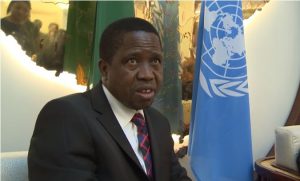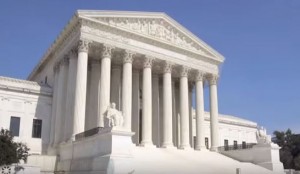
(The Guardian / UK) — A Chinese judge has rejected a gay couple’s attempt to secure the right to marry in the country’s first same-sex marriage case.
Sun Wenlin, 27, from the central province of Hunan, had sued the civil affairs bureau in the city of Changsha for the right to marry his 37-year-old partner Hu Mingliang, a security guard.
Sun decided to take legal action after authorities refused the couple’s request to have their relationship officially recognised as a marriage last June, on their first anniversary together.
In January a court in Changsha agreed to hear their case, which activists said was the first of its kind in China.
At lunchtime on Wednesday a judge in Changsha announced he was dismissing the case shortly after the three-hour trial hearing had ended.
Speaking to the Guardian after the unexpectedly quick verdict, Sun said he believed the court had not taken enough time to consider their case and had been “too cautious”.
He vowed to continue his quest for the right to marry.
“We will continue to appeal. I think it is worthwhile. It catches people’s attention and it will help our opinions spread,” Sun said.
“What we are trying to achieve is freedom and equality.”
Shi Fulong, the lawyer representing the couple, claimed the court had provided insufficient grounds for dismissing the case but said gay marriage was destined to become a reality in China in the not-so-distant future.
“If the law is unable to provide people with equality and justice, it means the law needs to be changed,” he said.
Earlier hundreds of lesbian, gay, bisexual and transgender (LGBT) campaigners had gathered outside the court to show their support for the couple’s case.
John Shen, a prominent gay rights activist, said he was optimistic about the future for China’s LGBT community, pointing to legal cases in which Chinese citizens had sought to safeguard their rights.
“Even though the case was rejected by the court I still think it is a big step since it has already raised huge attention and discussion, which was the case’s original goal,” said Shen, who is programme manager at the Beijing LGBT Centre, China’s oldest and largest advocacy group. “It is a monument on the way to victory.”
Nearly 20 years after China decriminalised homosexuality, in 1997, Shen said the LGBT community continued to face challenges. Homosexuality was still considered a mental health issue by many Chinese doctors and the country had no anti-discrimination law.
Some Chinese psychiatrists continue to prescribe electric shock treatment to gay patients in an attempt to “cure” them.
A recent survey conducted by the Beijing LGBT Centre found that most members of the LGBT community faced discrimination at university or work. “The situation was actually worse than we thought,” Shen said.
A separate study of the views of Chinese medical professionals found that 67% considered sexual orientation to be something that could be changed.
However, Shen, whose group has campaigned for gay marriage since 2009, said recent legal cases, in which Chinese citizens had sought to safeguard their rights through the courts, represented huge progress.
In September last year the filmmaker Fan Popo sued China’s censorship department in an attempt to discover why his 2012 documentary, Mama Rainbow, had been removed from the internet. The film tells the stories of six gay and lesbian characters coming out to their parents.
Two months after that case, the LGBT cause returned to the courtroom when a university student sued the ministry of education for permitting homophobic material to circulate in state-sanctioned school textbooks.
On Monday a Chinese court heard the country’s first transgender discrimination case.
“It is a very amazing time for us right now. One year ago we couldn’t have imagined such things in China. It is very inspiring,” said Shen, noting that China’s gay rights movement only started to take shape in the late 1990s.
“We are 30 years [behind] the west,” he said. But change was coming.
“Last year, if you’d have asked me [when China would allow gay marriage] I would have said maybe 20 years. Today I think maybe it will come a little sooner,” he said.
“I think we will have more litigation like this in the future, on many other topics, and we will also encourage other communities to join this kind of litigation with us to use the Chinese law to change the Chinese law.”




